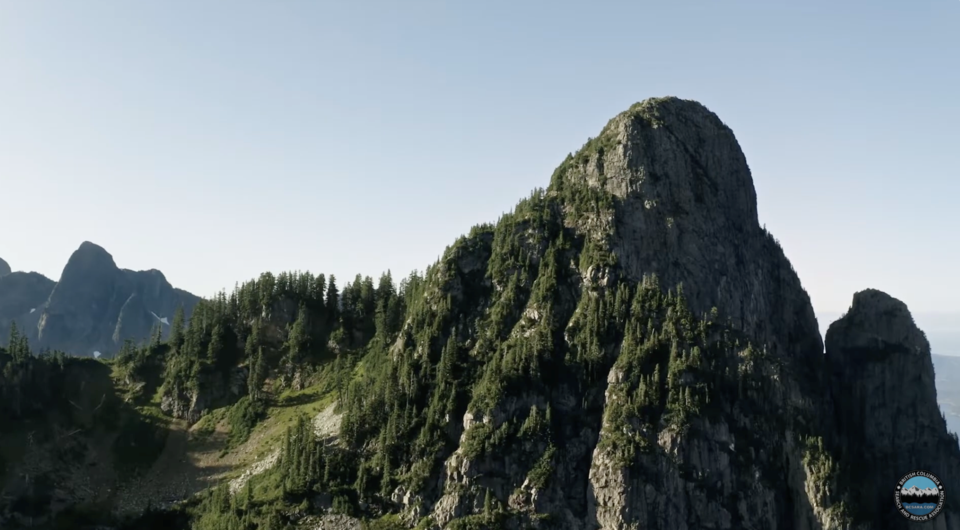Search and rescue members on B.C.’s southwest coast are seeing a tragic start to the year with multiple fatalities and several people seriously injured while recreating in the outdoors.
Doug Pope has been a volunteer with for 21 years and serves as a search manager.
“In my experience, I don’t recall such a bad start to the search and rescue season,” he said. “We're in a bad year."
Since the beginning of 2025, six people have died and three other people have not been accounted for in the Sea to Sky region.
Pope said that is a big number.
“It’s tragic,” he said. “I feel for the person and the family left behind and I think about the tragedy of it and what we as a team can do to help turn that around.”
Meanwhile, has also responded to several fatal or serious injury calls this year.
“I would agree that it’s been a tough start to the year,” said search manager Tyler Duncan.
Their members respond to roughly 120 to 140 calls a year.
“The vast majority of those have positive outcomes,” he told Lodestar Media.
Impact on volunteers
Not only are the devastating incidents leaving families changed forever, but they're also having an impact on the volunteers, the search managers say.
The volunteers have full-time jobs, with some of them working in health care, Duncan explained.
“They do continue to have an effect on our team,” he said. “Any sort of negative outcome is incredibly taxing.”
В鶹Йз№ъІъSAR has responded to back-to-back calls this season.
“That's incredibly challenging for a group of people, who at the end of the day, are just people that want to give back to their community,” said Duncan.
The calls that involve a person dying are hard on everyone, said Pope.
“We have a really good team and that's [in] part the main reason I've stayed on the team for 21 [years],” he said.
"I rely on them. They have my back when I'm climbing down a slope and they have the rope in their hand and I have 100 per cent trust in my teammates.”
SAR volunteers also have access to the critical incident stress management program and members who are trained in dealing with those types of scenarios.
“We have members within our own team and then we have resources outside our team, so we can rely on those,” he added.
Pope wants outdoor enthusiasts to know that while the North Shore is very beautiful to explore, it can also be very dangerous.
“It doesn’t take long for things to go wrong,” he said.
The social media effect
It's not unusual to see picture-perfect photos of popular but challenging hikes in B.C. in your social media feed. Photos that make you wish you were there.
The age of social media has normalized undertaking these, said Duncan.
“For the general population, they see that and they see it happening all the time in their backyard and they get a sense that they can do it with little to no background or training,” he said.
While it is positive that people are getting outdoors more, it’s key that people have training and knowledge of the activities they are doing.
"There is endless opportunity for outdoor recreation at every ability level," said Duncan. "There's an opportunity for people who have never gone hiking before to go out and have a wonderful day on beautiful hiking trails that are very accessible."
Instead of just looking at the sunset or highlight reel, educate yourself on how to prepare for potential situations, the SAR pair say.
“Because the unfortunate thing is if you don't, it can have a very negative outcome,” Duncan said.
For Pope, there are more people outdoors and just as many or more inexperienced individuals.
“I don't see an end to the trend of increasing fatalities,” he said.
BC Adventure Smart, a program of the BC Search and Rescue Association, puts out educational information and works to keep people safe while they’re outdoors.
Executive director Sandra Riches said their team is working on new ways to get their messaging out.
“When incidents happen that are so tragic, our hearts go out to the families, and it also makes us think... how can we be better at what we do?” said Riches.
The largest group requesting help from search and rescue in B.C. are those in the 20-29 age category.
“We know that that's a market that is calling for search and rescue more than any other group out there,” she said.
She wants the public to consider the three Ts when going outdoors: trip planning, training and taking the essentials.
“That training piece is critical,” Riches said. “It's the knowledge that everybody needs to understand what they need to know about the equipment they're using."
Mindset shift
People heading outdoors are encouraged to not just prepare for an enjoyable experience but for a worst-case scenario.
For example, if you twist your ankle, you’ll be colder and will need more clothing. If you’re lost and need to stay outdoors, you’ll need more food.
Many of the calls North Shore Rescue responds to involve people slipping and falling.
“That’s what causes the most injury and fatalities in my experience,” Pope said.
He noted being able to see the mountain tops gives a sense of security as the hikes are close to town.
“We have a lot of tourists that come to Vancouver and the closest natural environment is the North Shore Mountains and the Sea to Sky.”
Trends Pope and Duncan are seeing are a lot more tourists and a lot more inexperienced people calling for help.
During a on July 8, Pope helped educate people on slips and falls in the wilderness.



